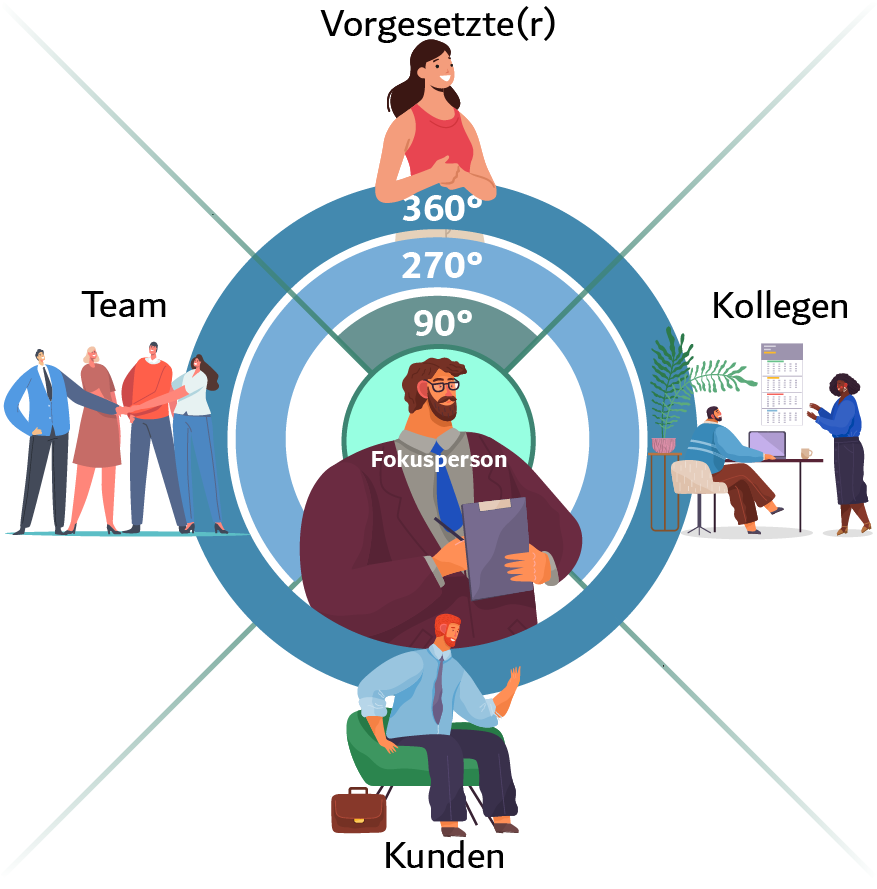Evaluation of psychological stress in the workplace: legal obligation and strategic advantage
Mental health is no longer a side issue — it is a central factor for sustainable corporate success. At the same time, the Workers Protection Act obliges employers to systematically evaluate psychological stress in the workplace. What seems like a legal obligation at first glance actually offers companies a great opportunity: Anyone who recognizes stress factors can not only minimize risks, but also increase motivation, commitment and productivity.
The evaluation of psychological stress is therefore much more than a “compliance issue.” It is a strategic tool for strengthening employee satisfaction and corporate culture, reducing turnover and strengthening the employer brand. When implemented correctly, it develops from a compulsory exercise into a decisive competitive advantage — for organizations as well as for their employees.
Legal background
Since 2013, the evaluation of psychological stress in Austria has been enshrined in the Workers Protection Act (ASchG). Employers are required to identify and document potential risks, take measures and regularly review their effectiveness. In Germany, the Occupational Health and Safety Act requires a similar procedure. The responsibility clearly lies with the employer. Failure to comply with this obligation can have legal consequences and at the same time signals a lack of care for employees.
Typical load factors?
Psychological stress in the workplace is not caused by individual events, but by a combination of various factors in the work environment.
🛠️ Workplace environment: Noise, light, climate and ergonomic equipment influence wellbeing. A good design is supportive, while adverse conditions create stress.
🛠️ Work processes and working time regulations: Efficient structures, realistic volumes of work and clear time arrangements reduce burdens. Excessive pressure, constant interruptions or unplanned overtime, on the other hand, increase stress.
🛠️ Organizational and Management Culture: Appreciation, transparency and supportive leadership strengthen motivation. Authoritarian or contradictory communication increases burdens.
🛠️ Development opportunities: A lack of prospects and a lack of learning opportunities lead to demotivation. Development and qualification opportunities increase commitment and resilience.
🛠️ Emotional Requirements: Dealing with conflicts, complaints, or emotionally stressful situations can be psychologically challenging. If support resources are lacking, the risk of overload increases.
Impact and benefits
A company that takes psychological stress seriously is sending a strong signal: The health of employees is not a side note, but a central concern. Those who take action not only strengthen trust, but also increase motivation and loyalty. Absenteeism decreases, collaboration improves and the organization gains resilience. Above all, however, a working environment is created that is characterized by mutual respect and openness.
From analysis to implementation
A successful evaluation process starts with the will to engage. The successful evaluation of psychological stress requires a structured approach — starting with careful planning, clear goals and defined responsibilities. It requires an open attitude towards employee perceptions and a willingness to critically question existing processes.
In practice, structured, anonymous surveys are often used, supplemented by in-depth discussions or workshops. Only when conclusions about individuals are excluded does the necessary trust for honest feedback arise. The collected data forms the basis for the analysis — but that is not the end of the process.
It is crucial that the results do not persist in the report. With the EUCUSA “From Feedback to Impact” approach, findings are actively brought into dialogue, prioritized and transferred into sustainable improvement processes. Whether it's about clearer roles, more effective communication or targeted support for managers: Even small, targeted adjustments can significantly reduce psychological stress — and thus contribute to healthier working conditions and a stronger corporate culture.
Conclusion: Strategically use mental health as a success factor
The evaluation of psychological stress is much more than a legal mandate — it is a central lever for sustainable organizational development. Companies that take this process seriously invest specifically in the health, satisfaction and performance of their employees. The key to success lies in a professional, structured approach, such as that supported by EUCUSA: from anonymous feedback to well-founded analyses and effective implementation.
Anyone who identifies, understands and specifically addresses psychological stress not only improves the working environment, but also strengthens commitment, innovative strength and resilience. This is how a duty becomes a strategic advantage — and evaluation becomes a real effect.








